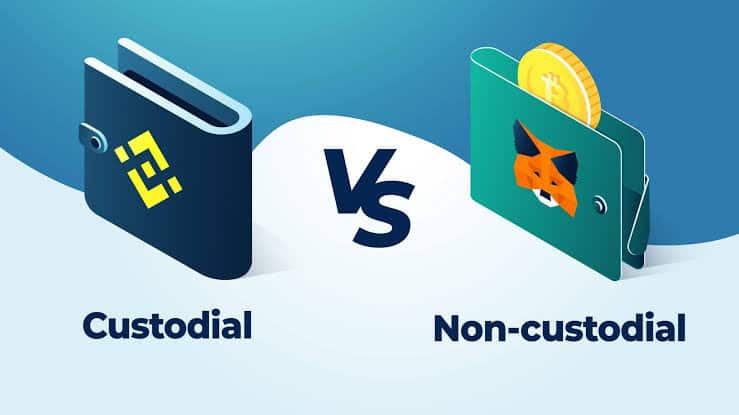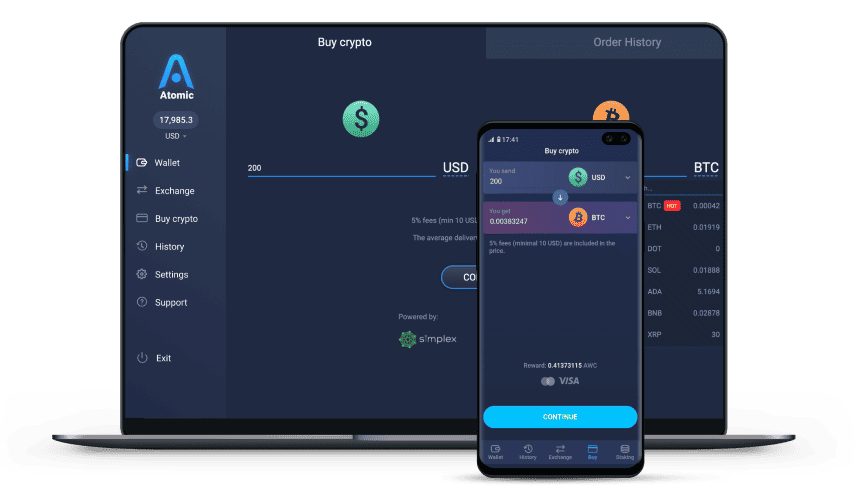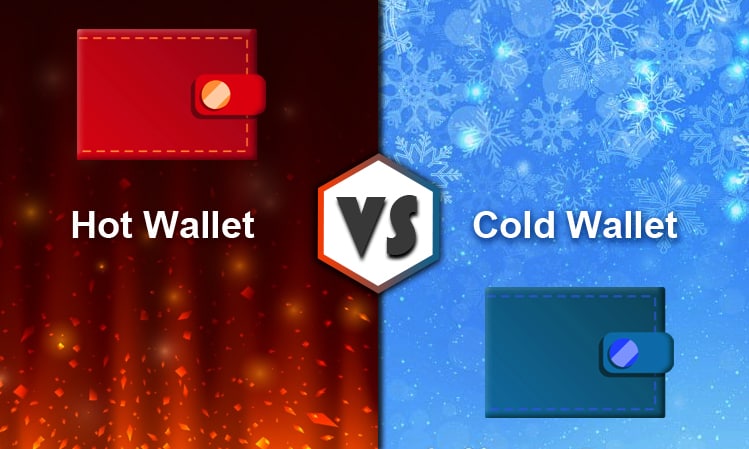Best crypto wallets are like vaults for your digital gold. You want a fortress, not a fishnet, to shield your assets from hackers and glitches. Dive into today’s vast sea of wallet options, and you’ll need more than a lifejacket to stay afloat. Will you bank on hot wallets’ ease or cold wallets’ stoic security? Maybe you’re weighing custodial convenience against non-custodial control. Each choice has its perks and pitfalls, and I’m here to shed light on them all. From the hard steel of hardware wallets like the Ledger Nano S and Trezor to essential security practices, let’s navigate these waters together. Your crypto wealth deserves no less than the pinnacle of protection. Let’s secure your digital fortune now!
Understanding Different Types of Crypto Wallets for Optimal Security
Distinguishing Hot Wallets versus Cold Wallets
You might wonder, what’s a hot wallet? It’s a tool that keeps digital money online. Think of it like a pocket for cash, but it’s on the web. Cold wallets? They’re more like safes. Not online, so hackers can’t touch them. These are the broad strokes. Let’s dive deeper.
A hot wallet connects to the internet. You access them through apps or browsers. They offer quick moves for your coins. But here’s the rub: being online, they can attract hackers. Think about it—keeping your door open might let in some bugs. Just like that, hot wallets risk digital pests. Yet, they’re handy for daily trades and payments.
Next, enter the world of cold storage solutions. Cold wallets are offline. They might be a fancy hardware device or just a piece of paper with secret codes. No net means better peace of mind against theft. It’s like a treasure chest buried in a digital island. Only you have the map—the keys—to open it. These are great for stashing your big coin stacks.
Pros and Cons of Custodial vs Non-Custodial Wallets
Moving on to another pair: custodial vs non-custodial wallets. Custodial wallets have a company holding your keys. Like leaving your pets with a sitter. Trust is key. But if the sitter loses your pet? Same worry here. If the company goes bust or gets hacked, your coins might vanish. But hey, they’re easy to use and often have support teams if you hit a snag.

Now, non-custodial wallets. Picture them as a lockbox. Only you know the combination. Your coins, your control. No middle man to lose your keys or play games with your cash. It’s all on you. But hey, with great power comes… you know it—great responsibility. Lose that code, and it’s game over. No reset button here. Yet, it’s thrilling to have total command, isn’t it?
With these insights, picking the right wallet gets a tad less daunting. Seek a balance. Like spicy or mild salsa. Some go all-in with cold, non-custodial types. Others mix it up. Maybe keep daily funds hot and handy. Then, cold-store the motherlode away from those pesky hackers. It’s like not putting all your apples in one basket. Gives you a shot at sleeping tight. Look for top cryptocurrency wallets that cater to your lifestyle and security needs. Your digital fortune deserves no less. Choose wisely, and may your crypto journey be both thrilling and secure.
Analyzing Top Hardware Wallets: Ledger Nano S and Trezor
Ledger Nano S Analysis: Features and Security
When you’re hunting for secure crypto storage, the Ledger Nano S shines. It’s a top choice in hardware wallet reviews. Its tight security features keep your digital coins safe. The wallet stores your keys offline, so hackers can’t get them. This is cold storage. Ledger Nano S uses strong wallet encryption. Every time you access it, you input a PIN.
It supports many coins, so it’s called a multi-currency wallet. You stay calm knowing your digital wealth is safe. But it’s not just about safety. The wallet’s design is neat and easy to use, a big plus for you.
Trezor Wallet Features: What Sets It Apart
Now, let’s chat about the Trezor. Like the Ledger Nano S, Trezor is another star in digital wallet security. It offers top-notch protection. This hardware wallet is like a vault for your digital coins. Trezor gives you cold storage solutions. It means your keys never touch the net. That’s super safe.
But Trezor’s user interface also gets big cheers. It makes checking your crypto easy, even for new folks. You can use it on computers or phones, making it a handy tool. The Trezor wallet supports tons of coins too. Feel free to dive into Bitcoin, Ethereum, or the best altcoin wallets.
Both wallets will ask for fees when sending coins. Know that it’s normal. They both get the job done well. They each have backup strategies, like recovery phrases. You must keep these words safe. They are your get-back-into-wallet key.
Both wallets also use two-factor authentication. This adds another safety layer. Using these devices is like having a small bank in your hands. They’re both reliable and put privacy in the front seat. Remember, you’re in charge of your crypto’s safety. Choose a wallet that fits your needs and peace of mind.
Mastering Wallet Security and Asset Management
Implementing Wallet Backup Strategies and Recovery Phrases
Your top cryptocurrency wallets are like treasure chests. To keep them safe, backups are key. Think of backup like your secret map. If you lose your wallet, this map leads you back to your treasure. Write down your recovery words. These words open your wallet, like a magic spell. Keep them hidden and away from prying eyes.
Most hardware wallet reviews will tell you: recovery phrases are gold. They are your last hope if things go south. Make sure you use all the words. Skip one, and your chest locks forever. Secure these words like your fortune depends on it because it does.
The Importance of Secure Key Management and Wallet Encryption
Keys are another big deal in digital wallet security. They let you in and keep robbers out. Treat them like you would your home keys – don’t give them out. Wallet encryption locks up your info tight. It’s like a guard that never sleeps.
Some people wonder why multi-currency wallets need good security. Imagine having a pocket with money from all over. You’d want that pocket to be super safe, right? That’s what wallet encryption does. It protects your pocket of digital money.

Cold storage solutions keep your crypto extra safe. Cold storage is like a safe hidden in a mountain. It’s far from hackers and safe from attack. Your online wallet risks are low here. But remember, even cold storage needs a backup. That way, even if the mountain falls, your treasure is still safe.
When comparing a hot wallet vs cold wallet, think day-to-day money versus savings. Your hot wallet carries what you use now. Your cold wallet stores the big bucks. Paper wallet creation is a simple form of cold storage. It’s like writing your secret codes on paper then locking it up.
Mobile crypto apps make life easy. Tap here and there, and you’re done. But they must be safe too. Hardware wallets like Ledger Nano S and Trezor are friends of safety. They hold your coins tight. So when you’re thinking about a wallet for ERC20 or any other coin, think safety first.
Remember: safety of digital wallets depends on how you manage them. Keep backups, watch your keys, and encrypt everything. Your digital fortune will thank you.
Choosing the Best Wallet for Your Cryptocurrency Portfolio
Evaluating Multi-Currency Wallets and Their Fees
When you dive into crypto, you need a safe place for your coins. Multi-currency wallets let you keep different types of coins in one spot. Before picking one, look at what coins it holds and the fees. Each time you swap coins, send or get money, you pay a fee. Wallets like Exodus are free to get, but network fees still apply. A good wallet does not take too much in fees. It keeps more of your cash right where it belongs – with you.
Top cryptocurrency wallets take care of your digital fortune without costing a lot. Look for ones with low fees yet still give top digital wallet security. Don’t miss out on the best deals. Checking wallet fees is a must for a smart crypto owner.
Wallet User Interface and Interoperability Across Devices
Using a wallet should not be hard. A great wallet has a clear layout that makes it easy to use. You want to see your funds quick and move them without fuss. Wallets should work well with many devices too. That means your phone, tablet, and computer should all get along with your wallet.
For example, mobile crypto apps let you deal with your cash on the go. Good wallets, like Ledger Nano S or Trezor, show you can trust them with great design and reliable function on all your gadgets. Just link them up and you’re ready to roll. Whether you’re a newbie or a pro, a smooth user interface can make all the difference.

Let this sink in: safety is the name of the game in crypto land. You want a wallet that’s easy to use and works everywhere. That’s what keeps your digital fortune safe and sound, and makes managing your crypto a breeze.
To wrap things up, we dove into crypto wallets to keep your coins safe. We looked at hot and cold wallets, seeing how they each serve different needs. Think about access and safety when picking one. We compared custodial and non-custodial wallets too. Remember, who controls your keys can be a big deal.
We checked out cool gadgets like Ledger Nano S and Trezor. Each has nifty security tricks to lock down your crypto. Being smart with backups and secret phrases means less stress if trouble comes. It’s like having a secret vault no one else can crack open.
Lastly, finding the right wallet means matching it to your crypto game plan. Will you deal with lots of currencies? Care about fees? Want a wallet that works everywhere, on any device? Think on this stuff.
That’s it from me. Keep these tips in mind to navigate the crypto world like a pro. Stay safe and make smart choices!
Q&A :
What are the most secure crypto wallets available?
When it comes to securing digital assets, the safety features of a wallet are paramount. The most secure crypto wallets typically include hardware wallets like Ledger Nano S and Ledger Nano X, which store the private keys offline, providing protection against online hacking attempts. Other secure options include Trezor and BitBox. For those who prefer software solutions, wallets like Exodus and Electrum offer strong security features, although they are not as impervious to online threats as hardware wallets. Always ensure the wallet you choose supports two-factor authentication and has a reliable backup system.
How do I choose the best crypto wallet for my needs?
Selecting the best crypto wallet depends on how you plan to use it. For active traders, a mobile or online wallet with quick transaction capabilities, like Coinbase Wallet or Trust Wallet, might be the most convenient. Long-term investors might prefer hardware wallets, such as the Ledger or Trezor, for their superior security. When choosing a wallet, consider factors such as ease of use, supported cryptocurrencies, security features, backup & recovery options, and whether you need the ability to swap tokens or connect to dApps. Always do thorough research and consider your risk tolerance and convenience needs.
Are there any free crypto wallets that are reliable?
Yes, there are several free crypto wallets that offer a good balance of convenience and security. Software wallets such as MetaMask, Blockchain.com wallet, and Exodus are free to use and provide a reliable service for managing and transacting various cryptocurrencies. While these wallets do not have the same level of security as paid hardware wallets, they implement strong encryption and security practices. As with any financial tool, it is important to follow best practices, like keeping your software up to date and using two-factor authentication, to enhance the wallet’s security.
Can the best crypto wallets support multiple types of cryptocurrencies?
Most of the leading crypto wallets are designed to support a multitude of cryptocurrencies. This multi-currency support allows users to manage different types of digital assets in a single wallet. Examples of such wallets include Ledger Nano S and X, Trezor Model T, Trust Wallet, and Exodus. These wallets tend to support the major cryptocurrencies like Bitcoin, Ethereum, and Litecoin, as well as a wide array of altcoins. Before choosing a wallet, be sure to check if it supports the specific cryptocurrencies you are interested in holding or trading.
What should I do if my crypto wallet is hacked or compromised?
If you suspect your crypto wallet has been hacked or compromised, take immediate action. First, try to transfer your funds to a new, secure wallet. Change your passwords and review your wallet’s recent activity to identify any unauthorized transactions. If you use a hardware wallet, make sure your recovery phrase is secure and consider resetting the device. Contact your wallet’s customer support for guidance. In case of significant losses, you might also need to report the incident to law enforcement. To prevent future incidents, review the security of all your crypto accounts and consider using a wallet with enhanced security features, such as a hardware wallet.


